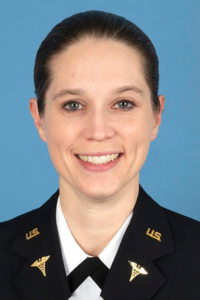
Poster presenter: Rachel Robbins, MD, Walter Reed National Military Medical Center
Poster title: Rheumatology Continuing Professional Development for Primary Care Providers: A Systematic Review
Poster Session C
8:30 – 10:30 a.m. ET Monday, Nov. 8
All ACR Convergence 2021 poster presentations are available on demand to registered meeting participants through March 11, 2022.
What is your poster about?
My poster is a quick summary of a systematic review I have been working on where I am trying to synthesize the current literature on rheumatology-focused continuing professional development (CPD) for primary care providers (PCPs).
Why did you decide to investigate this topic?
Around the country, we are facing worsening shortages in rheumatologists as evidenced by the 2015 ACR Workforce Study. There have been initiatives to try to ameliorate this shortage, though I think it is also prudent to look at CPD for PCPs as another way to address this issue. I also think that, as wait times for rheumatologists increase, it is even more important to focus on CPD as a way to help our PCP colleagues diagnose and treat early rheumatologic disease while patients wait to see rheumatologists.
What are you working on next related to this research?
We are looking at novel ways of doing needs assessments to target CPD to PCPs. One way we are looking to do this is using the consults themselves as a needs assessment since they reflect what PCPs are seeing regularly and may be a good indication of the questions PCPs have.
What excites you most about your work?
I thoroughly enjoy rheumatology and teaching. My research gives me the opportunity to combine my two passions while helping my colleagues, and hopefully maximizing the care of our patients.
Disclaimer: The views expressed in this interview are those of the author and do not reflect the official policy of the Uniformed Services University of the Health Sciences, the Henry Jackson Foundation, Department of Army, Department of Defense, or U.S. Government.
